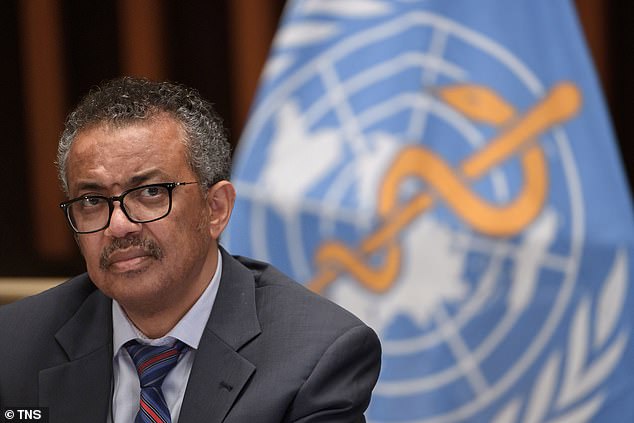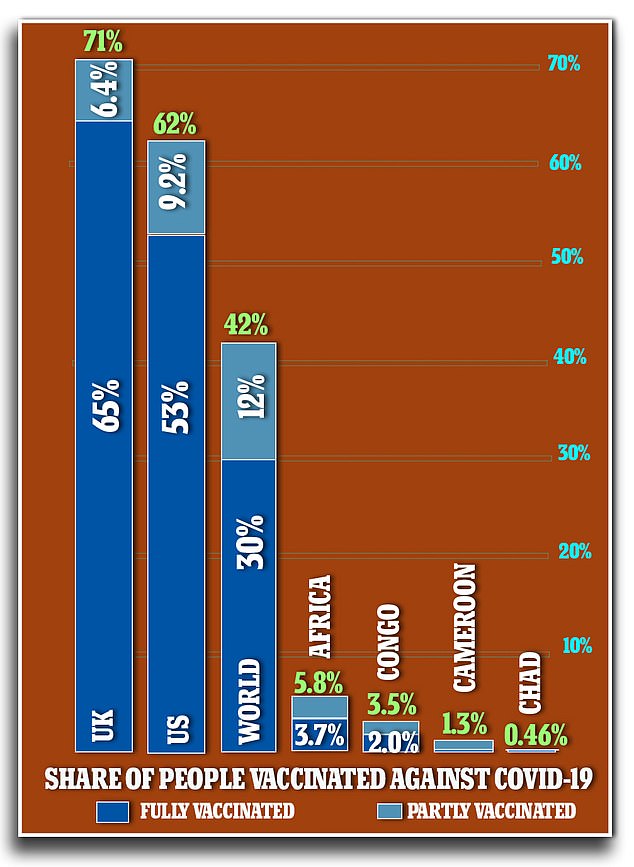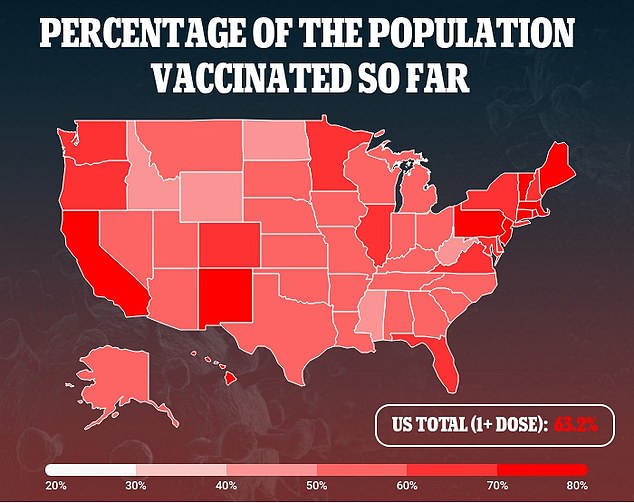The head of the World Health Organization (WHO) is once again calling for wealthy countries to postpone the rollout of COVID-19 vaccine boosters.
Instead, Director-General Tedros Adhanom Ghebreyesus said at a press briefing on Tuesday that richer nations should distribute extra doses to low-income countries facing vaccine shortages, especially those i Africa.
It is the third time Tedros has spoken against vaccine booster shots being distributed by wealthy nations, calling for a pause on distribution of the third shots through the end of September and then through the end of the year.
In Africa, just 3.7 percent of people are fully vaccinated against the virus because many poorer nations on the continent do not have enough doses or the infrastructure necessary to put together a massive operation the way many wealthier nations have.

Tedros Adhanom Ghebreyesus (pictured), Director-General of the World Health Organization, is calling for developed nations to halt the roll out of COVID-19 vaccine boosters

African countries have fallen way behind the global vaccine pace. Chad is among the worst, with less than half-of-a-percent of residents having received at least one shot of a vaccine. Less than 6% of Africans have gotten at least one shot overall
‘There are countries with less than two percent vaccination coverage, most of them in Africa, who are not even getting their first and second dose’ Tedros said.
‘And starting with boosters, especially giving it to healthy populations, is really not right.’
Africa has fallen way behind in the global vaccine roll out.
Less than six percent of Africans have received at least one shot of a COVID-19 vaccine and less than four percent are fully vaccinated.
Worldwide, 42 percent of people have received at least one shot, and 30 percent are fully vaccinated.
The gap between Africa and many western developed nations is even larger, with 71 percent of people in the United Kingdom and 62 percent of those in the U.S. having received at least one shot.
Some African countries in particular are falling behind, such as Chad, which has partially vaccinated less than 0.5 of its population.
Cameroon has partially vaccinated 1.3 percent if its population and the Democratic Republic of the Congo is at 3.5 percent.
Strive Masiyiwa, the special envoy to the African Union for COVID-19, told CNBC that trade restrictions are largely preventing countries on the continent from accessing the doses they need.
‘We want access to purchase,’ Masiyiwa said to CNBC.
‘We call on those countries that have put restrictions on exports – exports of vaccines as finished products, exports of ingredients, drug substance.
‘These restrictions are even more urgent for us today than intellectual property because the intellectual property doesn’t deliver a vaccine to us tomorrow.’
The western world, including the U.S. has made some efforts to help out countries in Africa and the rest of the developing world, however.
The White House has donated 111,000,000 COVID-19 vaccine doses to 65 nations – including 26 in Africa.
But plans to roll out boosters in the U.S. are underway with the White House targeting September 20 as the day to roll out third shots of the vaccines.
That deadline may be missed if boosters do not receive regulatory approval from the U.S. Food and Drug Administration (FDA) and the Centers for Diease COntrol and Prevention’s (CDC) advisory committee in time.


Some within the United States have been vocally against vaccine boosters as well, favoring donating even more doses abroad.
A group of 18 senior FDA officials published a report on Monday opposing vaccine boosters, saying the science does not support given boosters to healthy, fully vaccinated, Americans at this time.
Because the vaccines still prevent hospitalizations and deaths from Covid, the shots are doing their jobs, the officials believe.
Donating vaccines abroad has more than just humanitarian value.
Making sure people in other countries are vaccinated can reduce the overall spread of the virus, limiting the potential for variants to form in other countries then cause chaos stateside.
The Delta variant – which caused cases to increase 15-fold from early July to late August in the U.S. – originated in India before ravaging America.
Source link : https://www.dailymail.co.uk/health/article-9990611/WHO-director-says-wealthy-countries-giving-COVID-19-boosters-shots-not-right.html











